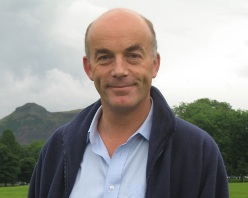Intuition Counts
Successful exploration still depends, at the highest level, on a bit of that old black magic, says Iain Bartholomew*.
Geoscientist 22.07 August 2012

What makes a successful exploration company? Why are some significantly and consistently more successful than others? And does size matter – does having the resources of a large-cap company contribute to success, or detract from it? As an investor, how do you choose a company to put your money in?
I believe that the root of successful exploration lies in having a good “nose” for oil. The difference between a large-cap company and a small one is just one of scale. Large companies spread their risk between a combination of “near-field” exploration (with a focus on adding short-term value to existing production hubs) and “impact growth” exploration – or, if you like, ‘finding the next big thing’. Small caps rarely enjoy the security of a safety net provided by material-producing assets, so their focus is on finding new ones. But for both, the bottom line remains the same - having a good exploration team.
In each case, good basic data and wide-ranging regional studies are crucial. Small-caps can achieve this just as well as large ones, though they may have to be more innovative and resourceful in finding the data they need. The success of any exploration team depends on vast experience and knowledge, and how these are brought to bear.
The understanding of risk and reward in an exploration portfolio is also critical for both small and large cap companies. A larger company will have a different attitude to risk compared with a purely exploration company – after all, we depend on the larger companies for most of our energy supply, and they in turn have to answer to their stakeholders. But having wise and experienced explorers will be what justifies that caution in the short term with new and viable assets in the long term.
So what makes a good explorer – or exploration team? It’s a combination of things. Geoscience – and being enthused about geoscience – is the foundation. It is exciting – even someone with vast experience can find something new every day – and intuition plays a large part in that. Exploration companies need to provide an environment with an element of freedom and even nurturing, to bring out the best in their exploration team. But there is no substitute for the basics – a solid understanding of the sub-surface, and immense patience, though it isn’t always about processes and procedures. Sometimes success can depend on a random thought – and the courage then to follow your nose to wherever it may lead.
* Iain Bartholomew is Exploration and Sub-Surface Director for Centrica. He served as Vice President of the Geological Society for six years and spoke recently on this topic at the SPE London Conference (27-28 June) - www.spelondonconference.com. Plans for the SPE Second Annual London Conference and Exhibition will be announced shortly.